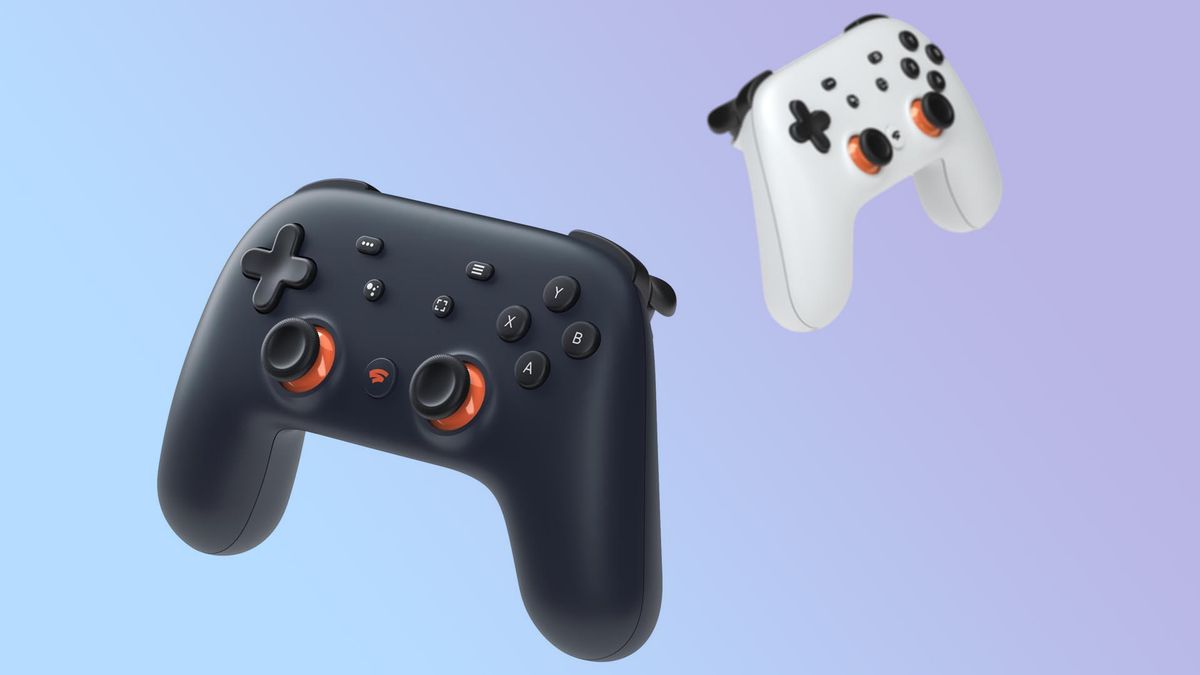Products You May Like
LG’s gaming TVs are some of the best on the market, with brilliant contrast, premium OLED panels, low input lag, exceptional response time, and a host of gamer-centric features including VRR (variable refresh rate) and Nvidia G-Sync (for connecting from compatible PCs). But there’s an additional feather in LG’s cap these days, and that’s support for the Google Stadia gaming platform.
We heard back in January 2021 that the Stadia game-streaming app would eventually be coming to LG TVs such as the LG C1, LG G1, LG A1, and 2020’s LG CX. As of December 2021, the Stadia service is available to download on any LG smart TV running webOS 5.0 and above, which basically includes 2020 models and onwards.
For any gamers already using an LG OLED TV for their games, Stadia’s availability is an additional bonus to a suite of gaming functionality. But we wouldn’t recommend buying any particular TV based on this capability alone. It seems unlikely that Stadia’s appearance on even the best gaming TVs will halt the platform’s steady decline, and possible disappearance from the market altogether.
The problem with Stadia
Oh, Google Stadia. The much-hyped, game-streaming service was meant to be the polished market disruptor that realized the promise of platforms like OnLive, a long-dead predecessor that launched too early for the world to truly take notice.
The concept of game streaming is simple: by putting the onus of processing on a server, the device displaying the game needs to do very little work. That means even intensive AAA games can perform well in a browser, on a smartphone, or on a smart TV, given they’re just showing off the impressive work being done elsewhere.
And Stadia certainly impressed in its initial demos, particularly as a means to try out blockbuster games in one’s home, even without the latest gaming kit.
But now it’s clear that Google bit off more than it could chew in this department. After courting big-name publishers and throwing loads of money into developing its own exclusive games, Google was forced to shutter its gaming department in the face of subscriber numbers well below company forecasts. Even games that were deemed only possible on Stadia are finding homes on other platforms as developers look to give their creations longevity.

One major issue affecting Stadia’s viability is the ease with which people can buy or play games elsewhere. If you want to game without buying a dedicated console, you can buy titles through Steam or the Epic Games Store on your computer. You can subscribe to Apple Arcade on an iPhone or a tablet, or even just stick to free-to-play games like Fortnite and Apex Legends.
Stadia might be capable of hosting more intensive games than some of these devices, but many of those interested in demanding gaming experiences will probably invest in suitable hardware.
Making the most of a gaming TV
The thing with the top gaming TVs is that they’re best utilized with a PS5 or Xbox Series X console, to make use of the HDMI 2.1 specification allowing for 4K/120Hz passthrough from connected devices. The real appeal of Stadia is in its compatibility with cheaper, more everyday gadgets. But if you can afford a proper home gaming setup, why splash on a premium TV rather than a good console, especially since the latter will cost, at most, half of the price of that screen?
Google Stadia’s Pro (paid) tier will up the service’s basic 1080p resolution output to 4K, with HDR and 5.1 surround sound (if you have the right audio equipment), but that $9.99 / £8.99 monthly cost could be spent on platforms or consoles that give you more bang for your buck.
With schemes like Xbox All Access, you can pay a monthly fee – as with a mobile phone contract – that throws in a console as well as a suite of games. The highest tiers of this service even include options for game streaming through Xbox Cloud Gaming, which doesn’t require you to buy a game all over again. Additionally, Xbox’s cloud gaming is integrated with the Xbox/PC platform in a way that Stadia can’t recreate. The Xbox ecosystem sets the stage for a future where game streaming dominates, without trying to wrench users away from existing platforms before market conditions are truly ready.
The result is a market that Stadia was never really poised to disrupt, or dominate. And anyone fawning over their brand new gaming TV probably won’t see much value in a service that has, so far, failed to offer a meaningful alternative to everything else out there.
The base Stadia plan is free, and you may wish to check out how it feels to play Destiny 2 over your home internet. But it’s hard to shake the feeling that most games are better bought, better played, and better serviced elsewhere. After all, why invest in a games library that might not be supported in a few years’ time?
